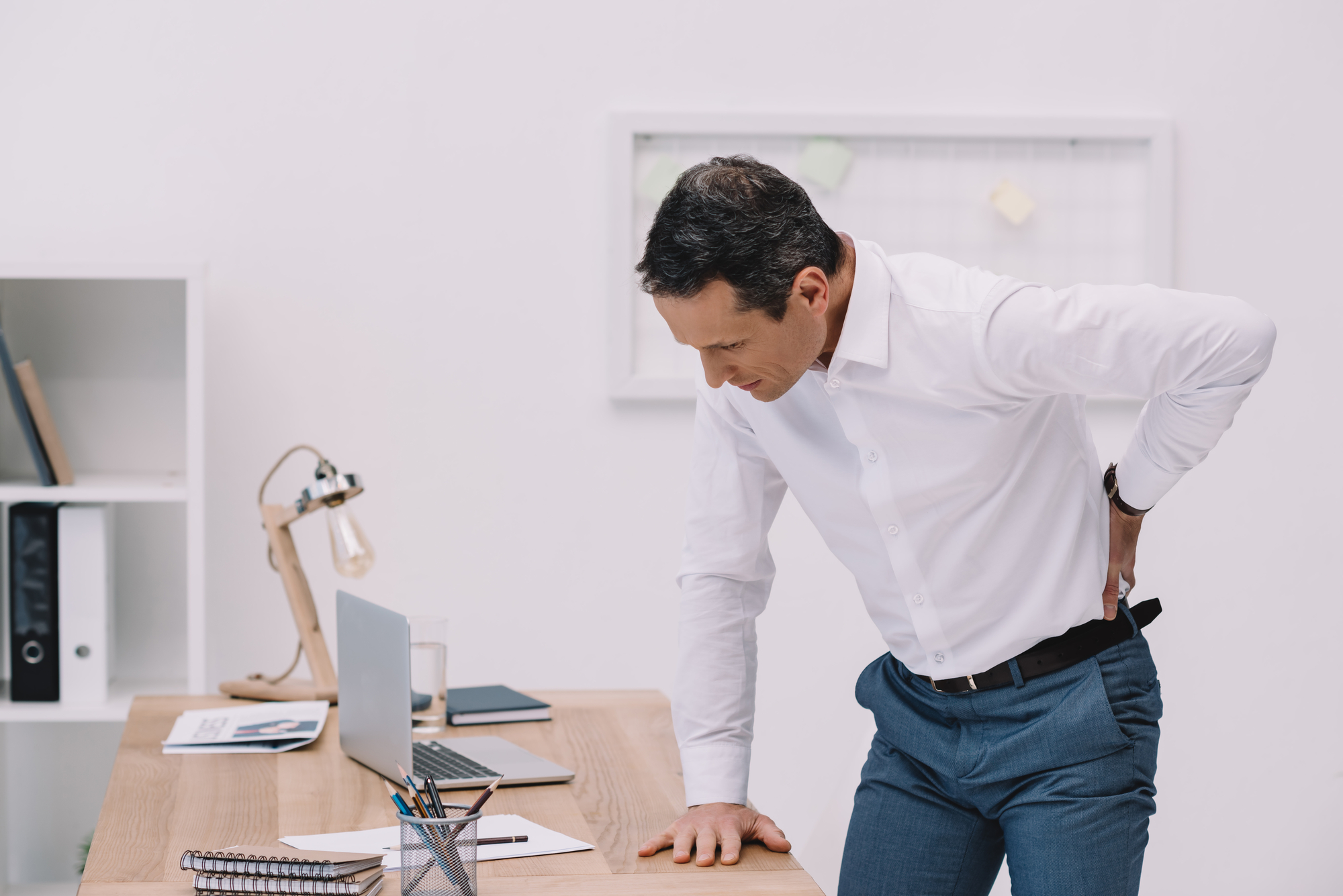Herniated Disc
What is a Herniated Disc?
The spine runs down the middle of the back. A healthy spinal cord is completely straight with all bones and discs in place. A herniated disc occurs when a disc of the spinal cord begins to move out of place, and this can cause chronic and severe back pain. Every vertebra is surrounded by protective discs, and when a disc begins to push out or in, the extra pressure goes directly to the spine. Basically, the disc has slipped out of its normal position within the spine. Most herniated disc cases are seen in the lower back. This cause of chronic back pain goes by several names. Patients may hear about a “slipped disc,” “pinched nerve,” “bulging disc,” or “ruptured disc,” but these conditions are the same and what we refer to as a “herniated disc.”
What Causes a Herniated Disc?
Typically herniated discs are caused by the wear and tear of aging. The outer ring of your intervertebral disc becomes weakened over time, which allows the inner disc to slip out of place. Factors that may add to your risk for developing a herniated, ruptured, or slipped disc are:
- Being overweight
- Wear and tear over time
- Sitting for long periods of time
- Weak back muscles
- An injury to the spine
- Lifting, moving, or twisting with heavy objects using the wrong technique
- Constant pulling, lifting, or straining of the back and spine
- Smoking
- A family history of disc degeneration
Herniated discs are also more common in men than women.
SYMPTOMS OF A HERNIATED DISC
Patients will know something is wrong if they are suddenly struck with never-ending chronic back pain. Usually, herniated disc pain in more toward the lower lumbar spine, and include symptoms such as:
- Muscle spasms in the back
- Chronic pain in any extremities — including the legs, feet, neck, arms, buttocks, hands, arms
- Feeling unexplained weakness when trying to stand or walk
- Numbness, tingling, burning, or weakness in the lower limbs
- Pain that is worse at night, after standing or sitting, or with certain movements.

TREATMENTS FOR HERNIATED DISCS
The entire spinal cord is sensitive due to the surrounding nerves. A herniated disc usually causes chronic back pain because of the extra pressure and stress put on the back. Patients ultimately need to rest the body and the spine; rest allows the body to heal itself. The best at-home herniated disc treatment is rest and relaxation. Besides resting, patients can take advantage of other at-home herniated disc treatments, such as:
- Taking short walks while using good posture and standing up straight
- Taking over-the-counter pain relief medicine, as needed
- Alternate applying heat and ice to the chronic back pain area
Overuse of the back and spine can prevent the herniated disc from returning to its normal position. Pain doctors will often recommend rest to treat minor herniated disc pain. It is when the pain turns chronic that patient should see a pain specialist for a treatment plan. A herniated disc with chronic back pain means the disc has seriously ruptured.
COOLIEF*
Spinal Cord Stimulation
Microdosing & Pain Pumps
Regenerative Medicine
Herniated Disc Recovery
Once the herniated or slipped disc returns to its normal position and is pain-free, patients can usually return to their typical schedule. The further treatment for herniated disc pain does not involve serious recovery time. Treatment options are non-surgical, technology-based, and natural. Natural treatment leads to a full recovery, but patients should make necessary lifestyle changes to prevent other discs from slipping or rupturing in the future.

